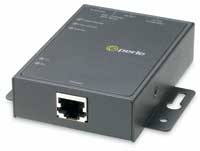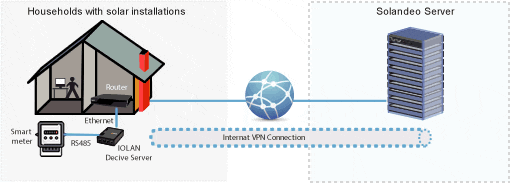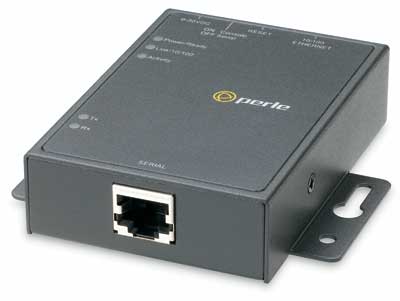February 6, 2020
Automating the transmission of data from remote industrial control systems – a Solandeo Case Study
In industrial settings like manufacturing and energy production, transmitting data from devices that use the standard RS485 data communications port is required.

NASHVILLE, Tenn. (Feb. 6, 2020) The Internet of Things (IoT) has dramatically reduced the need for human-to-human or human-to-computer interaction. Automating the process to access and collect information from equipment that is isolated at remote locations, and transferring that data over a network, is now commonplace across industries. However, as the number of connected devices grow, common challenges arise. In industrial settings, like manufacturing, energy production, and industrial control systems, transmitting data from devices that use the standard RS485 data communications port is required. One example is the smart meter.
A smart meter records production and/or consumption of electric energy and allows two-way communication between the meter and remote systems at gas, water, and electric utilities. More than 200 manufacturers worldwide produce smart meters that transmit data over an RS485 data communications port.
A common and popular way to access and transmit data from a smart meter is via a cellular modem. This works great when a smart meter is in an area with reliable high-speed cellular coverage. However, Solandeo, a German service provider of digital metering systems and data analytics, found this to be problematic.

In Europe, household and cooperative solar installations and battery storage facilities are classified as battery storage operators. While they use the electricity generated by their installation, they can also use the storage to participate in electricity balancing markets. Government legislation requires the installation of a smart meter in these instances.
Benedikt Pulvermüller, Teamleiter Technik at Solandeo comments, “We provide a smart-metering service that generates accurate and reliable metering and billing information. Today, smart metering systems for battery storage customers mostly use cellular modems for transferring energy information. Even though this set up looks great on paper, many customer meters are installed in cellars [basements]. Mobile signals in cellars are generally poor and we needed a major rethink to be able to provide a better service.”
Solandeo realized that a Serial Device Server would be the ideal product to replace the cellular modem. Device Servers transmit data from equipment with RS232/422/485 ports over Ethernet LANs.

Most residential and commercial buildings in Germany have DSL Routers already installed. This would be the primary access point. A Perle IOLAN Device Server establishes the connectivity between the RS485 data communication port on the Solandeo smart meter and the DSL Router. The DSL Router issues the IOLAN with an IP Address and initiates a secure VPN connection over the internet to the Solandeo Server where data is securely transferred.
“Access to the smart meters is now secure, reliable and straight forward, even in locations with poor mobile phone network coverage – just how we envisaged it,” comments Mr. Pulvermüller.
Because most equipment found in industrial settings use an RS485 data communications port, integrating Serial Device Servers during an automation project will provide a secure way to connect, monitor, manage and control industrial equipment over a network or the internet. Equipment isolated at remote locations can be integrated into a network to increase business operational efficiency and flexibility.
About Solandeo: https://www.solandeo.com
Solandeo is a leading independent meter operator with a portfolio of thousands of smart meters throughout Germany. Solandeo’s clients are principally industrial consumers, providers of battery storage for community or cloud-based solutions, as well as some gigawatts of renewable generation, ranging from a small 3 kWp PV plant to a 100 MW wind farm.
Solandeo’s partners rely on cost-effective products for metering, which include the provision of real-time data and, optionally, remote control. This enables renewable power plants for energy trading or participation in energy communities - fast and easy.
Furthermore, partners benefit from customer-specific intraday and day-ahead forecasts, which can be used for an improved trading or maintenance. Many energy traders, energy suppliers, industrial consumers, O&M or energy consultants are already relying on Solandeo.
